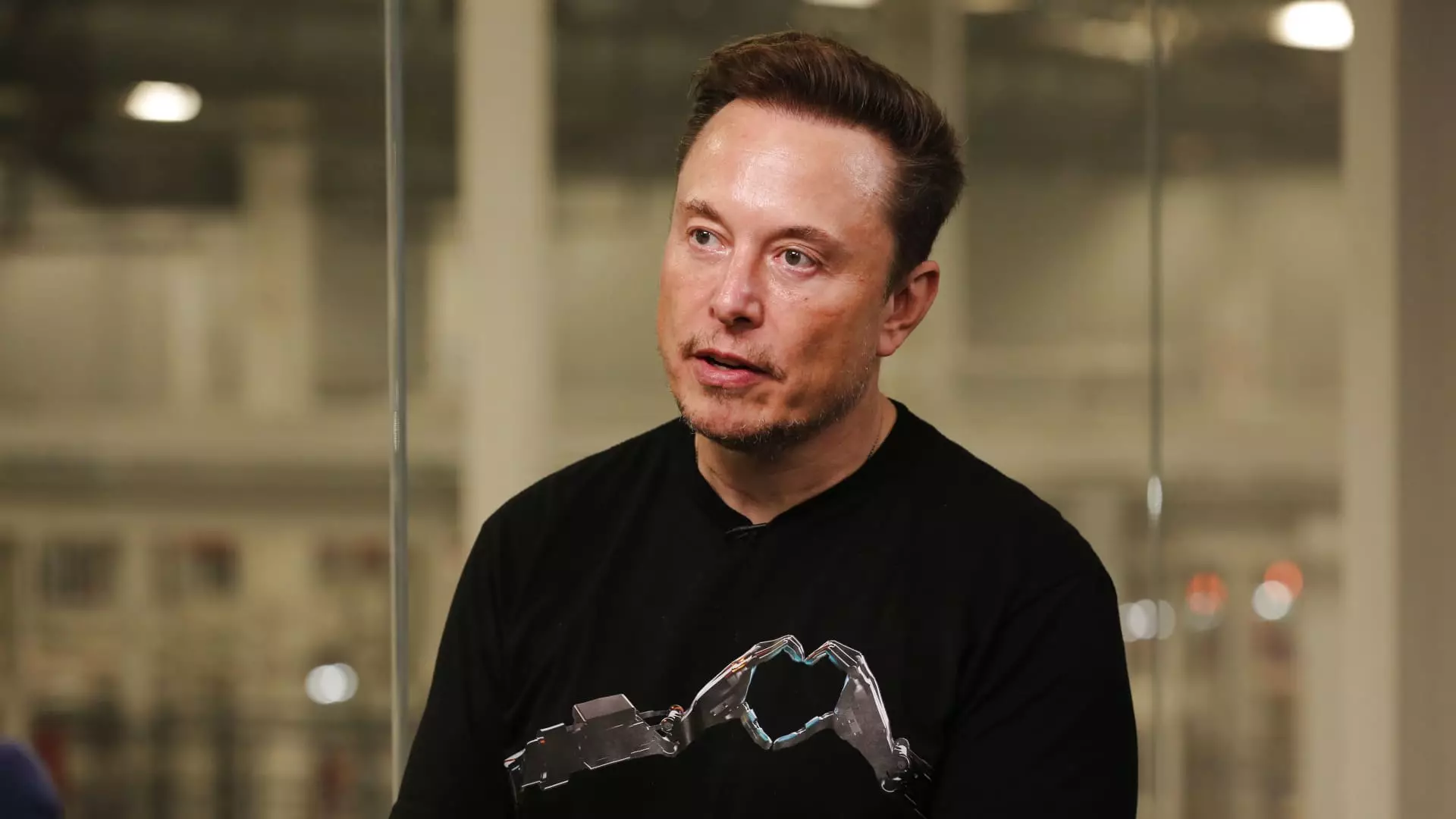In a surprising turn of events, Marko Elez, a staffer on Team Government Efficiency lead by tech mogul Elon Musk, tendered his resignation after the Wall Street Journal uncovered disturbing affiliations with a now-deleted social media account advocating for racially charged ideologies. This development has once again spotlighted the intertwining of technology, government efficiency efforts, and controversial narratives associated with prominent personalities in the tech realm. The account, linked to Elez, had previously propagated messages of racism and eugenics, revealing a troubling undercurrent among modern-day digital platforms and their potential to harbor extremist sentiments.
Earlier on the day of his resignation, Elez received judicial approval, alongside another DOGE team member, granting him access to the U.S. Treasury’s payment systems. However, constraints were placed on his ability to disseminate any information derived from this system. The juxtaposition of Elez’s newfound responsibilities and the allegations surrounding him raises critical questions about the vetting processes employed when integrating technology professionals into public service roles. The stark contrast between being celebrated for innovative contributions and being embroiled in controversies exemplifies the precarious balance that exists in modern governance.
The deleted account, once known as @marko_elez, was notorious for its inflammatory posts, including statements on ethnic pride and avowed racism. These tweets, including sentiments like “You could not pay me to marry outside of my ethnicity,” reflect a deep-seated issue: the persistent culture of racism that has found a significant presence on social media platforms, particularly in the tech sphere. The implications of having individuals with such ideological beliefs in positions of influence over governmental processes pose a significant threat. Social media not only acts as a crucible for ideas but also facilitates the spread of harmful ideologies, making it imperative that organizations engage in rigorous scrutiny to prevent the infiltration of extremist sentiments in public service.
Musk’s involvement in governmental reform, notably in slashing employee headcounts and cutting government spending, raises potential ethical dilemmas. The relationship between corporate leaders and governmental responsibilities continues to be a topic of profound concern. Treasury Secretary Scott Bessent’s defense of the DOGE team, characterizing them as “highly trained professionals,” shortly following the controversy is telling. It highlights a broader trend wherein efficiency and innovation are often prioritized over ethical considerations and accountability.
As the dust settles on this incident, the focus will likely shift to the broader ramifications not only for Musk’s initiatives but also for the future of workplace diversity and inclusion within government agencies. This episode must serve as a cautionary tale; vigilance is crucial in ensuring that the pursuit of efficiency does not come at the cost of ethical standards.
Marko Elez’s resignation underscores the complications that arise when the worlds of technology and governance converge. Going forward, combating the harmful rhetoric proliferated on social media, particularly in environments intersecting with public governance, is essential. As society strives for progress, thorough scrutiny and accountability must remain at the forefront of any efficiency-driven initiative to safeguard the values of diversity, equity, and inclusion.

Leave a Reply